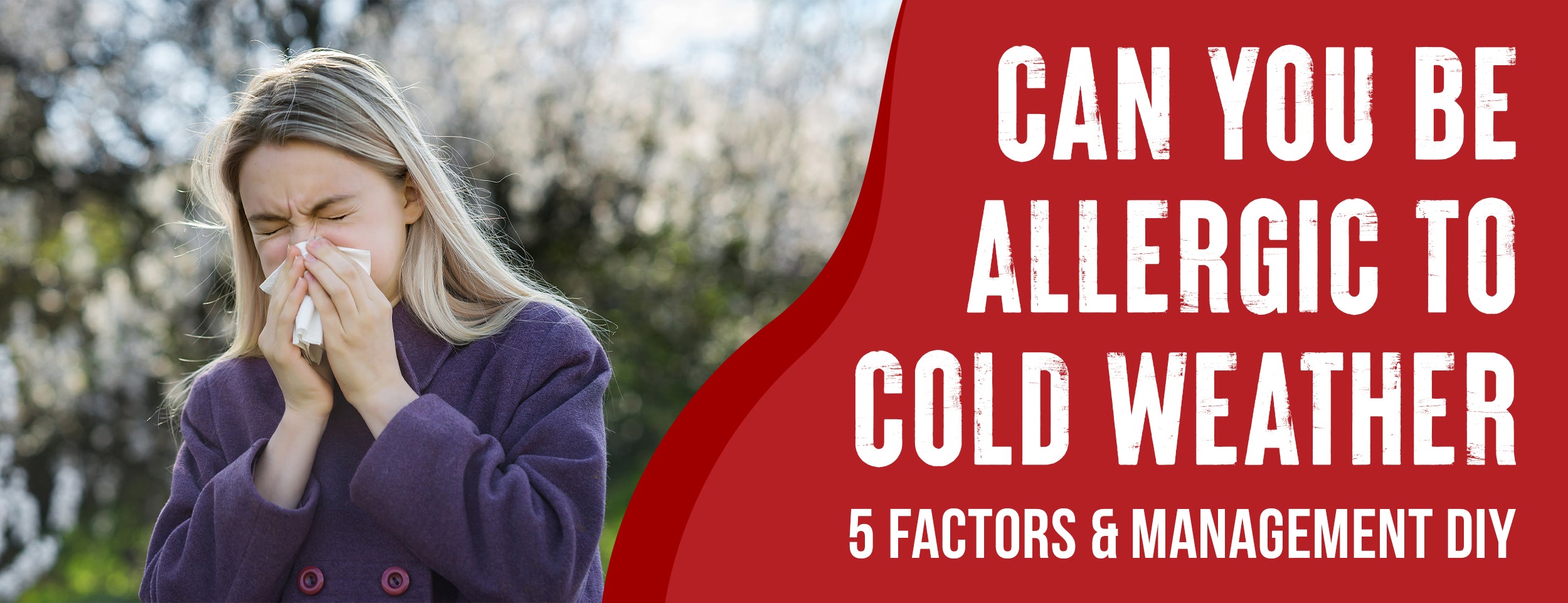A caffeine allergy is characterized by immediate and potentially severe symptoms, such as swelling, rashes, and hives, immediately after consumption.
Yes, you can be allergic to coffee without being allergic to caffeine. Allergies to coffee may stem from ingredients other than caffeine found in the beverage.
Our blog post will discuss the factors contributing to coffee allergies, clear the confusion, and get advice from your doctors.
Can You Be Allergic To Coffee But Not Caffeine: 4 Contributing Factors

Coffee, a staple drink for many around the globe, can occasionally cause adverse reactions in some individuals. But what factors contribute to this? Let's dive into it.
Role of Coffee Dust and Oils
We first need to understand that coffee isn't just about caffeine. Coffee beans release tiny particles known as coffee dust and oils when ground. Some people may have a sensitivity or allergic reaction to these substances.
- Coffee Dust: During the grinding process, coffee beans produce fine dust. Inhalation of this dust can trigger allergies in susceptible individuals.
- Coffee Oils: These are natural compounds present in coffee beans. In rare cases, they can cause skin irritations or allergic reactions.
Everyone is different, and reactions can vary significantly from person to person.
Individual Reactions to Coffee
People's bodies react differently to various substances, coffee being no exception. Some may enjoy their morning cup of joe without any issues, while others might experience discomfort or allergic reactions. This can be due to:
- Genetic Makeup: Our genes significantly affect how our bodies respond to different substances, including coffee.
- Immune System Response: Sometimes, the immune system may mistakenly identify coffee components as harmful, triggering an allergic reaction.
Caffeine Metabolism and Its Impact
Caffeine, the primary active ingredient in coffee, affects people differently based on their metabolism. While some can metabolize caffeine quickly without any adverse effects, others might metabolize it slowly, increasing sensitivity to coffee.
- Fast Metabolizers: These individuals can quickly break down and eliminate caffeine from their system, reducing the chances of adverse reactions.
- Slow Metabolizers: In contrast, slow metabolizers take longer to process caffeine, leading to overstimulation and potential discomfort.

Importance of Hand Hygiene with Coffee Beans
Handling coffee beans can sometimes lead to skin reactions, especially for sensitive skin or allergies. Therefore, maintaining good hand hygiene is crucial when dealing with coffee beans. It's advisable to:
- Wash hands thoroughly: Before and after handling coffee beans, wash your hands properly.
- Use protective gloves: If you're prone to skin reactions, consider using gloves while handling coffee beans.
Coffee Sensitivity and Allergy: Clearing the Confusion

Understanding the difference between coffee sensitivity and coffee allergy is crucial. Let's delve into the specifics of each to clear up any confusion.
Coffee Sensitivity vs. Coffee Allergy: Clearing the Confusion
Many people often mix coffee sensitivity with coffee allergy, but they are different. Here's how they differ:
- Coffee Sensitivity: This is a less severe reaction where your body may not agree with coffee, leading to discomfort. It's not life-threatening.
- Coffee Allergy: This is a more severe condition where your body's immune system reacts adversely to coffee, potentially posing health risks.
It's important to note that having a sensitivity doesn't necessarily mean you have an allergy.

Effects of Coffee Sensitivity
If you are sensitive to coffee, you may experience feelings of unease, such as anxiety or general discomfort. These reactions are usually not dangerous. Some common symptoms include:
- Feeling jittery or anxious.
- Upset stomach.
- Rapid heartbeat.
Remember, these symptoms are typically mild and go away once the caffeine in your system reduces.
Coffee and Existing Conditions
For some people, consuming coffee can exacerbate certain conditions like heartburn and acid reflux. Here's why:
- Increases Stomach Acidity: Coffee can stimulate the production of stomach acid. Heartburn or acid reflux sufferers could worsen your symptoms.
- Relaxes the Lower Esophageal Sphincter: Coffee can relax this muscle, allowing stomach acid to flow back into the esophagus, causing heartburn.
If you notice a pattern of discomfort after drinking coffee, it's recommended to discuss it with your healthcare provider.
Seeking Medical Advice for Suspected Coffee Allergies

If you suspect you're having an adverse reaction to coffee, seeking medical advice is essential. Let's explore why professional help is crucial and the role treatments like antihistamines and epinephrine play.
Importance of Professional Medical Advice
Experiencing discomfort or allergic reactions after consuming coffee should not be taken lightly. Consult a healthcare professional in such cases because:
- Accurate Diagnosis: A healthcare provider can accurately determine if you have a coffee allergy or sensitivity or if your symptoms are due to other reasons.
- Personalized Treatment: They can provide a treatment plan tailored to your needs and condition.
Self-diagnosis may lead to incorrect treatment, which may exacerbate your symptoms.
Role of Antihistamines and Epinephrine in Coffee Allergies
In the event of a suspected coffee allergy, treatments like antihistamines and epinephrine may be used. Here's why they're essential:
- Antihistamines: These medications can help alleviate minor allergic symptoms like itching, sneezing, or hives.
- Epinephrine: Epinephrine is often administered for severe allergic reactions, known as anaphylaxis. It helps reverse the life-threatening symptoms of anaphylaxis.
Even after administering these treatments, it's crucial to seek medical attention. This is because:
- Monitor Progress: Healthcare professionals can closely monitor your progress and adjust treatment as necessary.
- Prevent Future Episodes: They can advise on how to avoid future allergic reactions and manage your condition effectively.

Conclusion
while coffee allergies are rare, they are a reality for some people. That said, it's important to distinguish between a sensitivity and a true allergy, as the former is much more common and typically not dangerous. If you suspect that you might have a coffee allergy, don't hesitate to seek professional medical advice.
Remember, seeking medical attention is crucial even after administering antihistamines or epinephrine. As coffee enthusiasts, we should all strive to enjoy our favorite beverage while being aware of our body's unique reactions. So, go ahead and savor that cup of joe, but always listen to your body and take any unusual symptoms seriously.












